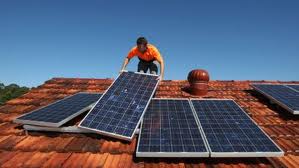The Federal Government has announced the early closure of its Solar Credits scheme, meaning that rooftop solar PV installations will receive only one renewable energy certificate for every megawatt hour of electricity produced from January 1.
The closure of the scheme, six months early, is the second time the government has intervened in the program, which was originally intended to end in 2015. Last year, it announced that the closure was being brought forward by 12 months.
Climate Change Minister Greg Combet again cited the costs of the scheme, saying that the decision would lower the impact on electricity costs for homes and businesses. He estimated the saving at $80-$100 million in 2013 – or around $11 a year for each household in the country – or 20c a week.
His decision means that for most Australians from January 1, there will be virtually no additional subsidies for rooftop solar PV installations. In some states, homeowners adding solar to their rooftops receive just 6c-8c per kilowatt hour.
The solar industry was stunned by the move and still had not figured out its implications. One suggested that the removal of the multiplier would add $700-$800 to the upfront cost of rooftop solar systems. The multiplier only applied to the first 1.5kW of any installed system.
The timing was also surprising, given that it comes in the middle of a review of the Renewable Energy Target currently being undertaken by the Climate Change Authority. That report suggests some changes to the small scale section of the RET, including a controversial proposal to discount the value of the credits to rooftop solar systems, ascribing a value of less than one certificate to each MWh produced. That prompted swift criticism from the solar industry.
“It is the wrong decision at the wrong time,” the Solar Energy Council CEO John Grimes said. All of the data shows there has been a slowing in the uptake of rooftop solar.” He pointed to the closure of feed in tariffs in Queensland and elsewhere, and to the CCA’s own data which shows that the impact of solar multiplier will decline in coming years. He also questioned the timing of the decision in light of the CCA review. “To cut across that process and announce this today is really poor form by the government, and calls into question how serious they are about getting that review process right.”
But the decision also comes after intense public lobbying from utilities and generators, particularly Origin Energy, which blamed the blowout in costs from the rooftop solar scheme for a downgrade in its earnings this week.
Other utilities, particularly in Queensland, are also pushing back against solar PV, threatening in some instances to impose restrictions on the amount of rooftop solar that can be deployed in an area.
Combet said the decision now meant that rooftop solar PV would now be on the same footing as solar hot water systems. He said that 880,000 rooftop solar PV systems had been added since Labor was elected and the renewable energy target came into effect.
“The multiplier was always designed to reduce over time,” he said in a statement. “Bringing forward the phase-out of the multiplier to 1 January 2013 will help place the industry on a sustainable path and ease pressure on electricity prices. By 2014 the small-scale scheme is expected to cost electricity consumers around 70 per cent less than in 2012.”








